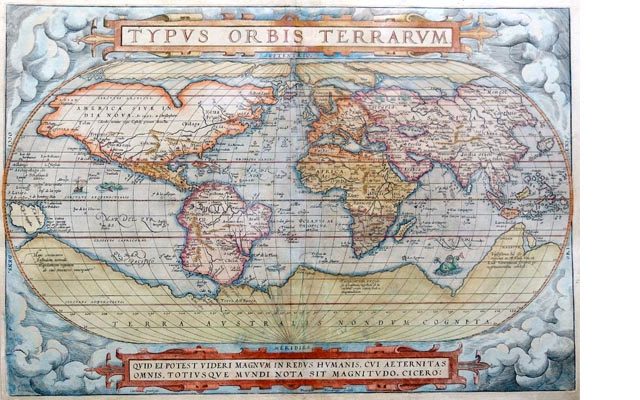
Date/Time
Wednesday, May 26, 2021
12:00 pm – 1:30 pm
Early Modern Cosmopolitanisms Lecture
–by Zoltán Biedermann (University College London)
Online event via Zoom Webinar
This event is free of charge, but you must register to attend in advance. All registrants will receive instructions via email after registering. Click the following link to register directly with Zoom: https://ucla.zoom.us/webinar/register/WN_rgsWfB5WTKuEsdVpXkWyrg

This paper proposes a conceptual intervention for the history of Spanish and Portuguese expansion inspired by scholarship on cosmopolitan practices in Asia, including Sheldon Pollock’s The Language of Gods in the World of Men and recent work by Richard Eaton on the Persianate cosmopolis. It asks the audience to consider whether the Catholic Monarchy, especially during its global heyday c.1580–1640, may be described as a cosmopolis of sorts. The arguments against such a reading are evident: intolerance, coercion, and violent repression of religious minorities are all defining characteristics of the Iberian Habsburg realm. But what if we revisit the concept of cosmopolitanism itself, and make it work harder than we normally do as an explanatory and interpretive tool, rather than a normative foil?
Zoltán Biedermann (Ph.D. École Pratique des Hautes Études, Paris / Universidade Nova de Lisboa) is Professor of Early Modern History at University College London. He has previously taught at Birkbeck College, the EHESS in Paris, Brown University, and the Universidade Nova de Lisboa, and was an Ahmanson-Getty post-doctoral fellow at UCLA in 2006–07. He is the author of several books including (Dis)connected Empires: Imperial Portugal, Sri Lankan Diplomacy, and the Making of a Habsburg Conquest in Asia (Oxford University Press, 2018), and a co-editor of Sri Lanka at the Crossroads of History (with Alan Strathern, UCL Press, 2017, full Open Access) and Global Gifts: the Material Culture of Diplomacy in Early Modern Eurasia (with Giorgio Riello and Anne Gerritsen, Cambridge University Press, 2017).
Professor Biedermann has been involved in several collaborative research projects, including “Global History and Microhistory” (AHRC – Oxford, Florence and Warwick), “Trópicos letrados: textos y prácticas eruditas del clero en los espacios del imperio portugués de la edad moderna (1580-1750)” and” Letras de Frailes: escritas franciscanas en el imperio portugués” (both at the Universidad Complutense de Madrid), “O Governo dos Outros” (ICS, Universidade de Lisboa), “Comentarios de Don García de Silva y Figueroa” (Universidade Nova de Lisboa) and “MEDIAN” (Agence Nationale de la Recherche, Paris). He was on the Scientific Committees of the 4th, 5th and 6th Ibero-American Conference on the History of Cartography (Lisbon, 2012; Bogotá, 2014; Santiago de Chile, 2016). He is also a co-editor of the Maritime Asia book series at the German publisher Harrassowitz and a Board Member of Tamesis Books.
He is attached to the Portuguese Centre for Global History (CHAM – now Centre for the Humanities) and the Centre for Early Modern Exchanges at UCL. He is the recipient of the Ronald Tress Prize for Research Excellence (2012) and has been elected a corresponding member of the Academy of the Portuguese Marine. He became a Fellow of the Royal Historical Society in May 2019.
This lecture is presented as part of Early Modern Cosmopolitanisms, a lecture series hosted by Barbara Fuchs (University of California, Los Angeles) and Andrew Devereux (University of California, San Diego) and sponsored by the UCLA Center for 17th- & 18th-Century Studies.
Image: World Map by Abraham Ortelius, Antwerp, 1570 (wikimedia.org)

